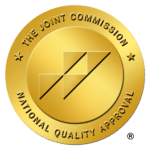Trauma, whether from major incidents or verbal abuse, intertwines deeply with addiction, complicating the recovery process. A study by the American Psychiatric Association revealed that a significant portion of individuals seeking addiction treatment have a history of trauma. This post delves into trauma-informed care in addiction recovery, outlining strategies for implementing this approach within a community setting and offering guidance on coping with trauma’s long-lasting effects. Readers will learn how trauma-informed care can facilitate better outcomes in addiction treatment and how to sustain recovery efforts after trauma. By addressing the unique challenges these individuals face, the content aims to equip readers with knowledge that can transform the healing journey.
Key Takeaways
- Trauma significantly influences the development of substance use disorders
- Trauma-informed care is crucial for effective addiction treatment and recovery
- Support networks and coping strategies are vital post-treatment for sustainable recovery
- Monitoring progress and celebrating milestones can reinforce commitment to recovery
- Cultural competence and individualized care improve treatment adherence and effectiveness
The Intersection of Trauma and Addiction
The intersection of trauma and addiction provides critical insight into substance use disorders. Clinics focus on understanding the complex influences that trauma exerts on an individual’s propensity toward addiction. Patients often carry a history of trauma that subsequently shapes their beliefs, mood, and fear responses, which may predisfect them to substance misuse. The following segments delve into the common types of trauma encountered, along with the profound biological and psychological impacts these experiences have on addiction. This foundation is indispensable for facilitating trauma-informed care within recovery programs.
How Trauma Influences Substance Use Disorders
Trauma, particularly adverse childhood experiences, has a profound impact on the development of substance use disorders. Individuals who have experienced early-life trauma often face heightened pain, which can lead to self-medication with drugs or alcohol, reinforcing the cycle of addiction. Moreover, those grappling with homelessness, a condition frequently intertwined with trauma, may find that their struggle for survival on the streets compels them to turn to substances for temporary solace or escape. Recognizing the role of trauma skills development is crucial for addiction recovery, teaching patients coping strategies that don’t involve substance abuse:
- Identifying triggers and learning to manage emotional responses.
- Building a supportive network that understands the impact of trauma on addiction.
- Developing self-care routines that provide healthy ways to cope with stress and past trauma.
Common Types of Trauma Experienced by Individuals With Addiction
Individuals grappling with substance use disorders frequently report a history of childhood trauma, a chronic condition that can impel a relentless search for relief. The Centers for Disease Control and Prevention recognize the far-reaching impacts of such early adversities, which substantially increase the likelihood of later forming an opioid use disorder or other dependencies. These traumatic experiences, varying from neglect to physical abuse, inexorably shape an individual’s coping mechanisms, often leading them to seek a reprieve in substance use. As one transverses the rehabilitating journey, acknowledging and addressing these deeply rooted traumas is paramount to fostering a resilient recovery.
The Biological and Psychological Impact of Trauma on Addiction
The correlation between trauma and addiction extends to profound biological and psychological ramifications. Trauma can alter brain chemistry, leading to heightened arousal and an impaired stress response, which may propel individuals towards substance use as a form of self-medication. Clinicians incorporate eye movement desensitization and reprocessing (EMDR), among other therapeutic interventions, as part of trauma-informed care in medicine, aiding those with substance use disorders in managing the long-term disabilities imbued by trauma. Insight into these changes can validate a patient’s experience, fostering a more compassionate and effective path to recovery.
Defining Trauma-Informed Care in Addiction Recovery
Trauma-informed care represents a significant shift in addiction recovery, prioritizing the core principles of understanding, recognizing, and responding to the effects of all types of trauma. This approach contrasts with traditional substance abuse treatment models by focusing on the safety of the person seeking help, addressing traumatic memories, and ensuring that the treatment environment considers each individual’s needs, including factors like gender and history of trauma. Psychologists and healthcare professionals alike note the numerous benefits of integrating trauma-informed care into recovery programs, from improved patient engagement to enhanced treatment outcomes. The subsequent sections will explore the foundational elements of this approach, its operational differences from conventional models, and the measurable advantages for recovery programs.
Core Principles of Trauma-Informed Approaches
The core principles of trauma-informed approaches in addiction recovery are rooted in a thorough understanding of the profound nexus between trauma and substance use disorders. This framework aligns with methodologies similar to those detailed in the Diagnostic and Statistical Manual of Mental Disorders (DSM), which recognizes the critical nature of addressing psychological trauma as part of a comprehensive treatment plan. Incorporating techniques such as Eye Movement Desensitization and Reprocessing (EMDR), trauma-informed care pivots away from denial and toward recognizing the symptoms and behaviors associated with trauma. It posits that by acknowledging the underlying disease of addiction in conjunction with trauma, patients can embark on a more nuanced and effective path toward healing.
Differences Between Traditional and Trauma-Informed Treatment Models
Traditional treatment models often center on the cessation of substance use with less emphasis on underlying psychological factors, whereas trauma-informed care practices prioritize a holistic approach. This innovative form of therapy integrates treatment improvement protocols sensitive to each individual’s history of trauma, including neglect and abuse. By making the goal to alleviate feelings of shame and promote healing, trauma-informed care enables patients to engage in therapy fully and fosters a safer environment conducive to long-term recovery.
Benefits of Integrating Trauma-Informed Care Into Recovery Programs
Integrating trauma-informed care into recovery programs vastly reduces feelings of confusion, sadness, guilt, and the stigma often associated with the crime of substance abuse. Patients benefit when their experience and struggles are understood and validated, leading to increased engagement, adherence to treatment plans, and a markedly improved chance of sustained recovery. This approach not only mitigates the distress associated with trauma but also equips individuals with the skills to manage their emotional responses, reframe their self-perception, and foster resilience against future challenges.
Implementing Trauma-Informed Practices in Treatment Settings
Implementing trauma-informed practices in addiction recovery necessitates the creation of environments that ensure safety, support healing, and respect patient consent. The American Psychological Association provides guidelines that inform training protocols for caregivers to recognize trauma and its relationship to conditions such as major depressive disorder. These training efforts empower staff to respond effectively to the complex needs of individuals suffering from depression, trauma, and addiction. The integration of specific therapies and interventions is fundamental to comprehensive care, with each advancement enhancing the patient’s journey to recovery. Next, the discussion will elaborate on the elements crucial to building these therapeutic spaces, the education required for responsive caregiving, and the therapeutic options within a trauma-informed framework.
Creating Safe and Supportive Environments for Healing
In the context of addiction recovery, creating safe and supportive environments is crucial for addressing the signs and symptoms related to trauma. A profound knowledge of the interconnectedness of psychological stress, trauma, and substance use disorders guides clinicians in designing spaces where safety and trust are paramount. Such environments consider the diverse backgrounds of individuals, including unique experiences such as being a parent or living with HIV, ensuring that these factors are not overlooked but rather integrated into compassionate care.
This reflective understanding shapes an approach to treatment that acknowledges and supports the multidimensional aspects of healing. It transcends mere physical safety, fostering a psychological refuge where patients can explore and overcome their traumas without fear of judgment or retraumatization:
- Prioritizing the identification of triggers and understanding their effects on each individual’s well-being.
- Empowering patients with actionable knowledge to mitigate psychological stress and manage symptoms effectively.
- Creating inclusive support systems that validate experiences as a parent or any other personal circumstance, such as HIV.
Training Staff to Recognize and Respond to Trauma
Effective trauma-informed care in addiction recovery hinges on the meticulous training of staff to recognize and respond to the nuances of trauma. This includes the integration of various therapeutic approaches such as cognitive processing therapy, eye movement desensitization and reprocessing (EMDR), and art therapy. Professionals are taught to identify signs of trauma that may manifest through behaviors linked to violence or past abuse. Such training empowers staff to provide psychotherapy that acknowledges and heals trauma’s deep-seated impacts, thereby enhancing the overall treatment and recovery process for individuals suffering from addiction.
Incorporating Trauma-Specific Therapies and Interventions
In the realm of addiction recovery, the inclusion of trauma-specific therapies and interventions is a profound leap forward, aiming to reshape an individual’s perception of their traumatic experiences. Health professionals prioritize activating the prefrontal cortex – the region of the brain involved in processing and overcoming trauma – through methods such as cognitive-behavioral therapy and neurofeedback. This approach is complemented by a strong emphasis on developing social support networks and, where appropriate, judicious medication management, to provide a comprehensive and sustainable treatment framework for those in recovery.
Strategies for Trauma Recovery Within Addiction Care
Strategies for Trauma Recovery within Addiction Care incorporate multiple therapeutic approaches to bolster mental health and foster sustainable healing. Cognitive Behavioral Therapy (CBT) aids in dual recovery, providing an evidence-based framework for individuals dealing with co-occurring disorders. Mindfulness and stress reduction techniques promote emotional regulation, pivotal for those in substance abuse treatment. Moreover, peer support and group psychotherapy offer valuable communal connections, reinforcing resilience in the face of addiction challenges. This section evaluates the applications of these strategies within a trauma-informed care context, as utilized by American addiction centers and mental health professionals.
Utilizing Cognitive Behavioral Therapy (CBT) for Dual Recovery
Cognitive Behavioral Therapy (CBT) serves as an integral component in the dual recovery from trauma and addiction, addressing how poverty and other socio-economic stressors exacerbate psychological distress. A psychiatrist may implement CBT to help individuals identify and rectify maladaptive thought patterns, improving overall health and quality of life. Through techniques such as guided breathing exercises, patients learn to manage cravings and emotional triggers, laying a foundation for enduring rehabilitation.
The Role of Mindfulness and Stress Reduction Techniques
Mindfulness and stress reduction techniques have taken a prominent role in addiction recovery, notably in primary care and mental health settings. These practices, through the cultivation of awareness, allow individuals to observe their thoughts, feelings, and behaviors without judgment, thus reducing mental distress. In essence, they serve as powerful tools in modifying the conditioned responses that interlace memory and substance use, empowering patients to manage emotional turmoil and carve pathways toward healing and resilience.
Building Resilience Through Peer Support Groups
Peer support groups foster a critical environment for resilience, allowing individuals within rehab settings to form an intimate relationship with communal healing. This understanding and shared experience of chronic pain and trauma, including that caused by natural disasters or emotional hardships, paves the way for candid exchanges that validate personal struggles and victories alike. The group dynamic contributes to sustained recovery by offering a buffer against isolation, a space where empathy flourishes and collective wisdom bolsters individual strength.
Overcoming Challenges in Trauma-Informed Addiction Care
Implementing trauma-informed care in addiction recovery necessitates navigating various challenges to optimize healing outcomes. Addressing co-occurring mental health disorders is vital, considering their intricate link with trauma’s effects on the hippocampus and emotional regulation. Furthermore, there are significant barriers to accessing trauma-informed services, often related to diagnosis, treatment availability, and continuity of care. Cultivating cultural competence and tailoring individualized care plans are crucial to ensure empathy and understanding are at the heart of the recovery journey. These topics underline the complexity of treating not only the addiction but the person as a whole.
Addressing Co-Occurring Mental Health Disorders
In the realm of trauma-informed addiction care, addressing co-occurring mental health disorders becomes a paramount concern, fostering hope and trust in the recovery process. The intricate synergy between mental health and addiction necessitates accessibility to comprehensive care, including treatments covered by Medicaid. By creating a space where individuals feel safe and supported, clinicians can enhance the accessibility of tailored treatments that address the entirety of a person’s needs, thereby embodying the very essence of trauma-informed care.
Navigating Barriers to Accessing Trauma-Informed Services
Navigating barriers to accessing trauma-informed services remains a significant challenge in the realm of addiction recovery. The Substance Abuse and Mental Health Services Administration underscores the necessity of reducing barriers that individuals, including survivors of intimate partner violence, face when seeking aid. It is imperative that first responders, policymakers, and facilities understand these barriers – from limited resources to stigma – and collaborate with the National Institute of Mental Health to mitigate the risks associated with untreated trauma. By enhancing awareness and fostering partnerships, professionals can effectively guide those affected by substance abuse towards the compassionate care essential for their journey to recovery.
Ensuring Cultural Competence and Individualized Care Plans
Ensuring cultural competence and individualized care plans are vital in the fabric of trauma-informed addiction recovery. Such plans acknowledge the diversity among consumers, incorporating specific cultural considerations and varied responses of the nervous system to trauma. By tailoring interventions to also address related conditions such as insomnia, programs like intensive outpatient programs (IOPs) can optimize their support for emotional health and foster more meaningful, personalized recovery journeys.
| Aspect of Care | Importance | Application in IOP |
|---|---|---|
| Cultural Competence | Integral for treatment adherence and effectiveness | Customization of therapy modalities to fit cultural sensitivities |
| Nervous System Considerations | Key to understanding individual trauma responses | Integration of neurobiological therapies to address dysregulation |
| Comorbid Conditions (e.g., Insomnia) | Often present with addiction; impact overall well-being | Comprehensive approaches involving sleep therapy and relaxation techniques |
| Emotional Support | Crucial for sustainable recovery | Enhanced through peer groups, counseling, and empathetic staff |
Moving Forward: Sustaining Recovery After Trauma
Moving forward in the journey of recovery, it is vital to establish long-term coping mechanisms that address the range of disorders from bipolar disorder to personality disorders. Strengthening support networks post-treatment provides the reinforcement necessary for those overcoming trauma’s effects, including persistent tics or other psychological wounds. Furthermore, monitoring progress and celebrating milestones in recovery encourages individuals to persist in their healing journey. Each subsequent section will detail strategies for developing resilience, maintaining supportive connections, and recognizing achievements in the recovery from trauma.
Developing Long-Term Coping Mechanisms
Developing long-term coping mechanisms is essential in the intricate journey of addiction recovery, particularly for individuals with a dual diagnosis who may face triggers like anger from a breakup or stressful visits to the emergency department. One establishes resilience and bolsters confidence by embracing strategies that include emotional regulation, mindfulness, and assertive communication. Through these sustainable coping mechanisms, individuals are better equipped to manage complex emotions and stressors, contributing to a more robust, long-lasting recovery.
Strengthening Support Networks Post-Treatment
In the aftermath of addiction treatment methods that address traumatic stress, dialectical behavior therapy (DBT) emerges as a formidable ally, empowering survivors of trauma—including those affected by assault—to build resilience. The maintenance of strong support networks post-treatment, which can be rooted in one’s culture and community resources, is essential for enduring recovery. These networks provide not only emotional backing but also practical strategies for coping and relapse prevention, equipping individuals with the necessary tools to navigate the complexities of life beyond the clinical setting.
Monitoring Progress and Celebrating Recovery Milestones
Monitoring progress is a cornerstone of effective addiction psychiatry, enabling both the patient and the mental health professional to observe improvements and address ongoing challenges. Celebrating recovery milestones within a residential program can have a profound impact, bolstering self-esteem and reinforcing the commitment to recovery. It is critical for those with a history of substance misuse and suicidal ideation to recognize and commemorate these victories, as they underscore the resilience and hard work invested in the healing process. Clinical psychology emphasizes the value of these achievements, following an intentional and structured approach to acknowledging progress:
- Setting specific, measurable goals at the outset of treatment.
- Utilizing regular assessments to track improvements in mental health and coping strategies.
- Organizing milestone celebrations that resonate with the individual’s journey and efforts.
- Engaging with peers and support networks in the residential program for collective acknowledgment.
Conclusion
Understanding trauma-informed care is fundamental to successful addiction recovery, as it acknowledges the intricate link between trauma and substance use disorders. This approach enhances treatment by addressing the individual’s history of trauma and provides a supportive environment for healing, which significantly improves engagement and outcomes. Training in trauma-informed practices equips healthcare providers to offer personalized care and effectively manage co-occurring mental health conditions. Ultimately, such comprehensive care fosters resilience, ensuring a more meaningful and sustained journey toward recovery.













